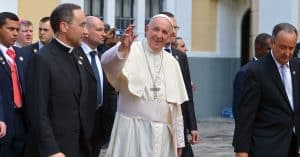Details of Biden's cognitive decline begin to emerge as term comes to end
President Joe Biden leaves office Monday as the oldest president in U.S. history, marking the end of a contentious term amid allegations of deteriorating faculties.
The president stepped down from seeking re-election last summer, and details are now emerging about the cognitive decline that helped lead to that decision, as the Daily Mail reports.
Biden, at 82, had been under mounting scrutiny regarding his health during the latter part of his presidency. The scrutiny intensified following an incident recounted by Mike Johnson, speaker of the House, which took place in January 2024. During a meeting, Biden appeared unaware of signing an executive order several months earlier, an event which shocked Johnson.
Johnson's alarming experience
The executive order that Biden reportedly forgot he signed was announced on Jan. 26, 2024. It temporarily halted approvals for exporting liquefied natural gas, which was in high demand in Europe. This incident prompted Johnson's remark, questioning the operational control at the top leadership level.
Biden's approach to the energy sector and subsequent lack of recall intensified debates about executive competency. Concerns about who was steering decisions reflected wider apprehension among lawmakers and the public. As Biden's mental acuity became a topic of discussion, many questioned his ability to serve.
Major Debate Sparks Concerns
The debate on Biden's capacity gained momentum after a significant misstep in a June debate against Donald Trump. As reports of his cognitive decline spread, he announced he would not run for a second term. Although Biden exited his campaign, he publicly asserted, "I think I would have beaten Trump."
Modifications were made to Biden's schedule and public appearances to help manage his declining condition. His aides worked diligently to shield him, even altering Air Force One's stairway to minimize potential public slips.
Efforts to Maintain Presidential Image
Behind the scenes, Biden's schedule was skillfully coordinated to prevent revealing his challenges. In small, private gatherings, a teleprompter was used, and donors were asked to submit questions ahead of time. These adjustments aimed to protect not only Biden but the administration's image.
First lady Jill Biden and other close family members were among the president's supporters who helped navigate through these tumultuous times. At the close of his term, Biden admitted, "I don't know. Who the hell knows?" regarding the vigor needed for another term.
In an effort to keep the party unified, Biden endorsed Harris for the top of the presidential ticket. He remarked that stepping aside was crucial to avoid dividing the party, believing it was an "honor to be president." Despite his confidence, Harris did not manage to win against Trump, losing all seven critical swing states.
According to Biden, the decision to endorse Harris was to promote unity within the Democratic Party. He stressed his belief in the party's ability to secure a victory, which ultimately did not occur. During the campaign, Biden expressed uncertainty about his physical capacity to serve, remarking on the unpredictability of his condition as he aged.
Adapting to Presidential Challenges
As Biden faced these challenges, his public image was carefully managed to reduce potential scrutiny. His reluctance to conform to certain health adaptations, like refusing an orthopedic boot, resulted in a noticeable limp. This was symbolic of the broader difficulties he faced as an aging leader.
Throughout his term, reports indicated his closest confidantes helped keep discussions surrounding his faculties under control. Despite the controversies, Biden's term concluded with him reflecting on his tenure as the president, acknowledging both the privilege and the challenges experienced.
Biden Reflects on Political Journey
His decision to step back from re-election aspirations was guided by the desire to prevent party discord. Despite his own belief in his reelection chances, Biden's stepping aside was a strategic move to push party unity forward. In his statements, Biden continued to reflect on his tenure and the choices he made for the future of his party and country.
The challenges Biden faced served as a reminder of the demands and vulnerabilities inherent in leadership. Ultimately, Biden's presidency was defined by complex dynamics and shifts in political landscapes. As new leadership now enters the scene, the legacy of Biden's term remains a topic of debate, analysis, and reflection.




